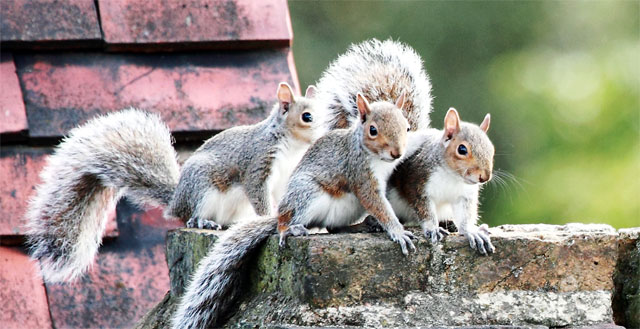
AnimalKind: Defining ‘Humane’ for Communities and their Animals
April 1, 2019
We interviewed Dr. Sara Dubois, lead researcher of the Humane Wildlife Control Accreditation project (now AnimalKind), which received a Test Grant in 2016 and a Scale Grant this year. This project was featured in our ‘Featured Grants’ section and we wanted to follow-up with Dr. Dubois to learn more about how the systems change lens informed the project, how the project team knew they were ready for a Scale Grant, and key insights into how they were able to effect systemic change.
-
- What grant did you originally receive for the Humane Wildlife Control Accreditation project? Can you briefly describe the project? What system is it trying to change and how?We received a Test Grant in 2016 to develop a Humane Wildlife Control Accreditation Program, now called AnimalKind , through a research collaboration between the UBC Animal Welfare Program and BC SPCA. When it comes to wildlife control and pest management, legal isn’t always humane. Wildlife control is an industry that we take for granted and millions of animals in BC alone are affected every year. From an animal welfare perspective, this is a priority: many animals suffer and there’s a chance to lower or eliminate that entirely. We wanted to know the latest science on wildlife control, what the current standards are, whether anyone else is moving towards a different model, and what that model could look like. We focused on translating information from evidence and policies into best practices and a path to an accreditation program. The program ensures that the public can be aware of what standards the industry is allowed to work within and to have the power to choose a pest control service or technique that aligns with their values.
-
- Were you able to successfully influence change? Were there any unexpected learnings that informed the next stage of the project?We were uncertain about how the pest control industry would respond – this is not an industry that has traditionally had relationships with animal welfare organizations or scientists. We were positively surprised that they were open to conversations about humane wildlife control. They shared their current practices and challenges with us and we were able to come to a final set of standards that were realistic but still moved the bar for animal welfare. This helped inform the next stage: We asked them what they needed, what the laws were, and what tools could be accessed and supported to bring new technology into the province or country. We’ve learned a lot from the industry, especially by engaging with them so early.
-
- Did the project team know right away this work was reflective of ‘systems change’ or did the application process challenge you to think about the work through this lens? The concept of systems change was a bit novel for us a few years ago. We knew we were trying to effect awareness and behavioural change. We didn’t want just individual consumer behaviour change but the whole industry; in other words, the whole system of accessing pest control. By articulating our goals within the grant itself, it helped us expand our vision. We realized we needed a lot more time to understand the industry (i.e. the system). The timeframe to make these types of changes is a systems change approach. Having the ability to rely on funding for three years exceeded our expectation of our usual year-to-year funding. It gave us more flexibility to tackle this problem we previously didn’t have.
-
- You’ve just received a Scale Grant for this project. How did you decide the project was ready for this next level of funding? What do you hope to achieve through this next phase of the project? We started with wildlife control, but we recognized the AnimalKind model itself could be used in other businesses. We know consumers are trying to access humane pet services like doggy daycare and dog training. The challenge is that online reviews are driven by marketing and anyone can say their business is ‘humane’ – just like the pest control industry. We’ve been able to leverage animal welfare science with practical industry consultations to create sets of standards that will enable us to work towards an accreditation program for these types of businesses. The accreditation program would allow consumers to educate themselves on these standards and select a pet service that aligns with their values. We don’t have regulatory role. It’s a voluntary program that will hopefully push the industry to look at their own practices and create a line in the sand, that is fully transparent to consumers and society.
-
- What advice would you have for any applicants when applying for a Systems Change grant? Partnerships have been key. UBC has been a source of evidence-based research and expertise, and the BC SPCA has been an important community partner, but we’re also fortunate to have the industry to partner with us. We’ve also developed partnerships with government agencies, which helps us effect even more change. Recently, the Vancouver Park Board passed a motion to review pest control and poisons used in their parks to see if they can align their practices with AnimalKind standards. Now businesses are wanting to get accredited so they can submit a bid for that contract.
-
- How would you define “systems change”?For our world, systems change is changing behaviour of people’s choices based on new information we’re able to provide them. We’d love to get to the point to change what ‘humane’ means in institutions and culture. Sustainable, long-term change happens if people are informed and can have agency in their decision-making, and we want to enable that – for their sake and the animals’.

